By Scott M. Fulton, III, Betanews

It's a very big slice of a shrinking pie. As the netbook form factor serves as a much-needed lifeboat for most PC manufacturers, driving average selling prices (ASPs) lower across-the-board, premium PC maker Apple is left with almost complete command of the higher end of the market. Those are the findings of research firm NPD earlier this week, as first reported by Betanews blogger Joe Wilcox. He computed the numbers NPD delivered, and concluded that in terms of revenue (not unit sales), more than nine of every ten dollars spent by Americans on computers whose prices are $1,000 or greater, are collected by Apple.
For the Apple faithful, being able to quote any Microsoft-like market share number in their favor is like Christmas come early. It means there's a genuine market segment where Apple is in complete control. But as those who know Apple very well are saying -- folks like NPD Vice President of Industry Analysis Stephen Baker, who is responsible for the numbers Wilcox cited and who spoke with Betanews this morning -- Apple has a little secret: It doesn't really care about market share.
"I just don't think that the state of the economy in the long run matters a lot to Apple, or impacts them one way or the other," said Baker. "They have a pretty stable market, [and] they're able to continue to sell into that market...Let's not forget that Apple is really, on the hardware side, two different companies. The MacBook computer company is a premium company that has no interests in being #1 in market share, has really no interest in volume. It has an interest in building great products and managing the business to the right profit margins at the right prices."
While Apple is by no means immune to the ill effects of the bad global economy, it is clearly not suffering. Late last month, the company posted quarterly results showing net sales rising 11.7% over the year-ago quarter, and margins rising just over a point to 36%. But even though those are overall margins -- which also takes into account iPhones, whose cost of production continues to decline -- they're still not ideal, especially for a company that essentially owns the premium computer market. And even though Apple is selling 4% more Macs now than it did at about this time last year, it's reaping 8% less net profit from those sales.
"Their notebook sales have struggled so far in 2009, their overall sales in the first six months were negative versus 2008. So they've struggled, they recognize that in a more recessionary economy, they need to be a bit more price competitive," Baker told us. "[With] the last MacBook Pro upgrade, they definitely reduced their prices; and certainly at the entry level price points, their products are pretty competitively priced when you do all the math."
So is Apple's firm stake to the premium market actually a tenuous position to be in, given the state of this economy? Illuminata Senior Analyst Gordon Haff told Betanews this morning that he believes there's a danger in folks overstating Apple's case, even on the company's behalf.
"There's something to be very careful of with respect to those numbers. They are specifically Apple's share of >$1000 PCs in US retail," said Haff. "That's not at all the same thing as overall share when you consider that Apple has a fairly substantial network of their own retail stores; and many of the premium PC models, such as the Dell Adamo and HP Blackbird, aren't commonly available at retail outlets such as Best Buy, if they're available at all. That's not to contradict the basic point that Apple has a much bigger slice of the high-end market than they do overall, but those numbers do somewhat overstate the case."
But does that mean Apple's 91% isn't really much of an island to stand on after all? Stephen Baker says no:
“This is where Apple, like every other vendor that has traditionally sold conventional form factors like laptops and desktops, needs to be very careful about cannibalizing its existing line.” Carmi Levy, independent analyst and Betanews contributor |
"I think the short answer is, look at their earnings. I don't think there's any question that Apple knows what they're doing, and they're in a position that they're very comfortable with. Not everybody has to sell a zillion units to be profitable or be successful, and I think from Apple's perspective, given -- as they continually say -- that they could make crappy computers the same way other people do, but they wouldn't feel comfortable doing that, and they feel comfortable where they are...they're certainly viable as being positioned as a more premium brand."
To remain competitive, all the other players that lack Apple's unique ability to stake claim to premium PCs, have had to rush to the "value" side of the market in order to eke out a profit. The netbook form factor has saved the rest of the PC economy. Meanwhile, Apple plays this game as though it doesn't need a netbook and doesn't want one. As I argued to NPD's Baker, maybe market share really doesn't matter to Apple -- maybe it's just fine where it is.
"You know what? I think you're not incorrect, but I do think that even in these economic times, Apple needs to find some ways to be more accessible to a bigger range of consumers. In the PC side of their business, they likely need to do some kind of permanent SKU, permanent product at about a $799 price point, to make sure that their customer base stays focused on that. Because they are a little separated from the rest of the PC market, they really do need to offer a little bit better in terms of value. They don't need a $399 netbook in their MacBook line, clearly; nor do they need something [MacBook] at $599, none of those things are a benefit to them.
"They need to do something around the $399 - $599 price point that is netbook-like, but that re-invents the concept of what the netbook has been thought of," Baker continued. "I think there's a huge opportunity for them there in what Intel and others have called a Mobile Internet Device."
Next: Analysts debate the merits of the "iPhone-Plus-Plus"
Here is Stephen Baker's proposition: Apple has positioned itself perfectly to create and produce a high-level device with a larger screen than an iPhone, that appeals to some of the same consumers who would be considering netbooks, but which isn't (like some other netbooks) a cheap computer. And it can afford to take that gamble, and maybe break even at the outset, because of its firm stronghold in the premium side of the PC market. MacBook, in other words, is the fountain from which new upper-level iPhones may flow.
This new product that Apple would produce, as Baker describes it to Betanews, "would be more of...a step up off the iPod Touch, that would offer a bigger screen, offer a little different experience, than what you get from an iPhone or from an iPod Touch, but still not be associated with what is going on in their PC business. Those margins, and the way they manage that business, really needs to be carefully nurtured, and they have to be careful about how aggressive they can be in price without really destroying the margin structure there. But there are opportunities in a category like the iPod segment where clearly the market is saturated -- they need a new paradigm in there to kind of revisit and reinvigorate that segment."
Are we talking about what ARM and Qualcomm have advanced as something called a "smartbook?" No, says Baker: "If it's got a clamshell and a keyboard, then that's a computer in my mind.
“I don't think there's any question that Apple knows what they're doing...Not everybody has to sell a zillion units to be profitable or be successful.” Stephen Baker, Vice President of Industry Analysis, NPD |
I think what the alternative to the netbook really is, is an on-the-go, always connected kind of device, the way Intel has described the Mac, actually, but without the baggage of the carriers, necessarily; without the baggage of voice; and clearly without the issue [that netbooks have] of being a clamshell, and being not pocketable and not really convenient to use when you're on the go. [It would have] a bigger screen because the limitation on the iPhone is that it needs to be in your pocket and it needs to be small, and with you all the time. That really negates your doing a great Internet device...because really no matter what they do with a three-and-a-half-inch/four-inch screen, it's never going to be a great experience."
In other words, Baker's "Super-Duper-iPod/iPhone-Plus-Plus," as he referred to it (probably a temporary name) doesn't really have to be the greatest Internet computer on the planet, because it's not a computer. More importantly, it's the $799 device that Apple needs in its arsenal, without being the netbook that it doesn't want to be associated with.
This afternoon, I ran that proposition past another of Baker's friends and colleagues, our own Betanews contributor and independent analyst Carmi Levy. Carmi sees the appeal in Apple's being able to address a certain mobile professional with an iPhone that's a little something more. Such a device, he says, would address that buyer's need for "instant-on" functionality, followed by the ability to catch up with, and produce small batches of, work.
"It makes a lot of sense for Apple to extend the form factor of a device that already offers a fairly well-evolved mobile user experience, which is the iPhone or the iPod Touch," Carmi told me this afternoon. "These things are far more effective as mobile workflow than a netbook running Windows XP, that needs to boot every time you simply want to check your mail or update your blog or check the weather while you're out."
It's difficult to define just what this device would be. Illuminata's Gordon Haff this morning tried to pin it down on the low end of the MacBook scale: "[Apple] can't be oblivious to pricing realities. It may well make sense for them at some point to introduce a low-priced notebook if they can do something interesting and distinctive with the design. But a flat-out, cost-focused system like most netbooks? No, it doesn't really make sense for them."
So certainly not a netbook; but Carmi Levy adds to that, it can't really be another notebook either:
"Apple's go-forward strategy needs to be not mimicking what's already gone before. And Apple's never done that anyway; it's not like they're about to start. They've made it very clear they're not going to ape the existing netbook form factor, and that's the smartest thing they could possibly do. They've also indicated that they can't create a computer for $399. Doesn't mean they can't create another device for $399; the iPod Touch sells for a lot less than that. So you have to reach into the language: Apple will introduce devices both above and below that $399 price point, but they certainly won't look like a netbook."
Here's the problem: Baker's new "super-iPhone" would have to work unlike a netbook. It would have to work like something more than an iPhone. And yet it cannot, and perhaps should not, work like a MacBook -- especially not if Apple wants to maintain that 91% stronghold for very long.
"We are at the very early stages of figuring out what it is that we like to do while we're on the go. The concept of mobile workflow means something different to everybody depending on how they define it," remarked Betanews' Carmi Levy. "So because this is a relatively new market, and it's quite likely the only bright spot in an otherwise devastating consumer electronics market these days, vendors are rushing into it, in some cases without giving a whole lot of thought to what those end user needs will ultimately be. They're simply hoping that what they throw at the wall sticks.
"This is where Apple, like every other vendor that has traditionally sold conventional form factors like laptops and desktops, needs to be very careful about cannibalizing its existing line. It's a challenge that's been faced by every tier-1 vendor; certainly HP has faced it. There is an acceptance and understanding that a certain percentage of their netbook buyers are in fact buying netbooks instead of laptops."
NPD's Baker believes Apple's solution to this problem is simple: Clearly distinguish, with branding and appearance and capability, that this new device is in the iPhone line and not the MacBook line.
“At the end of the day, Apple is a relatively high-end brand and they've done pretty well with that strategy to date. They can't be oblivious to pricing realities.” Gordon Haff, Senior Analyst, Illuminata |
"If it's positioned as an iPod or as an iPhone, it has no impact on the MacBook business, it has no impact on the MacBook ASPs, it has no impact on the MacBook profit margins," said Baker. Arguing that such a distinction would help prohibit cannibalism of Apple's existing products, he added, "If the iPhone or the iPod Touch hasn't driven people out of the MacBook and into those platforms, then I don't think what we're talking about here will do the same thing."
But how would such a distinction be maintained? Apple's tool of choice to date in distinguishing the iPhone and iPod Touch from what should essentially be a small Macintosh, has been control: specifically, control over the level of functionality that these small devices are allowed to attain. Carmi Levy perceives that it would not be beneath Apple to use this same tool to control its $799 device.
And there may be the rub, where the entire plan could potentially backfire: "What [Apple] can't afford to do is deliberately hobble the device such that it does not provide the workflow that a mobile professional requires," Carmi said. "Apple may be afraid of cannibalizing the sale of a $1,300 MacBook Pro; but at the same time, if the market expects that that capability should be available at $799 and Apple fails to deliver it, Apple runs the very real risk of having that mobile professional look at another vendor. Apple may not want to cannibalize its own lines, but it may not have a choice to at least do that to a certain extent, if it wants to keep those potential buyers in the family."
One alternative that Apple may consider, Carmi suggests, is to build up the MacBook rather than tamp down this "super-iPhone." "Then what it does is, it opens up an opportunity to continue to add value to their top-line product," he said. "What Apple needs to do -- if in fact they're going to blow up the iPhone platform into a closer-to-full-sized form factor, at the $799 price point -- is ask themselves, if someone paying that much for that kind of device will be willing to jump through hoops to pay for his or her applications, and get at his or her data.
"And we all know the answer will be, no. The iPhone, as wonderful as it is, is not a workflow device. The challenge, obviously, is marrying the seamless workflow capability and cost-effectiveness of a full-on platform, with the instant-on mobility and seamless, on-the-go use of something based on an iPod Touch or an iPhone. Unfortunately, it's the convergence of capabilities that is not very easy to pull off, because if it was easy, then we would have seen it already...If it [can't], then essentially, it will be nothing more than an expensive iPhone that will languish as a niche, luxury product."
If anyone can pull this off, however, it's probably Apple. As Gordon Haff told us, "Apple just has more cachet as a company, and that's hard for someone who just makes the PC hardware to compete with."
As Stephen Baker believes, Apple's entire business model is geared toward doing just this very thing: "I think their whole business model surrounds the fact that they throw off an awful lot of money out of the MacBook business, and set that money to strategically invest in products and technologies that drive their brand, and drive the awareness of them, to higher levels. Otherwise they wouldn't have 300 stores, they wouldn't be spending all that money on the iPhone, and they wouldn't have bought a semiconductor company. They have a lot of freedom because of the kind of cash flow and profit margins that the MacBook throws off."
Carmi Levy advises anyone who disagrees with Baker's reasoning to check out not only Apple's track record, but Baker's. "If you look back at Apple's history, Mr. Baker's perspective bears out, because they essentially use their position as owners of an island, so to speak, in Macs, in the late '90s, to fund the development of the iPod. The fact that the iPod exists is largely due to the fact that Apple has sufficient cash flow from its supposedly niche operations in desktop and laptop computers. So essentially, Apple is simply reinventing history with that strategy in 2009. It's worked for the company before, and it's going to work for it again."
Copyright Betanews, Inc. 2009







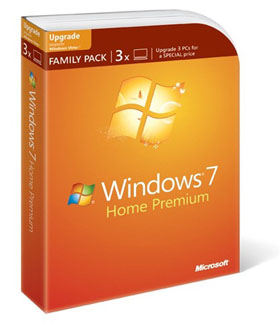

 The short strokes of this week's Microsoft-Yahoo Internet search partnership must make Mr. Yang sick to his stomach: What Microsoft was willing to spend upwards of $45 billion for
The short strokes of this week's Microsoft-Yahoo Internet search partnership must make Mr. Yang sick to his stomach: What Microsoft was willing to spend upwards of $45 billion for 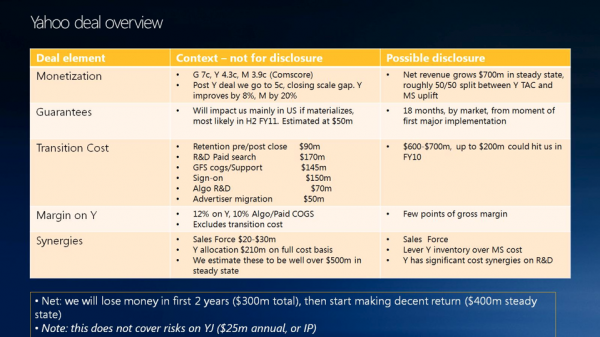
 Mozilla is
Mozilla is  Stephen Elop and Bob Muglia delivered two of the more difficult presentations during Microsoft's annual Financial Analyst Meeting. Elop runs the Business division, which had been a consistent performer until fiscal fourth quarter, when revenue fell 13 percent year over year. Server and Tools did better, but still took a revenue hit in fourth quarter.
Stephen Elop and Bob Muglia delivered two of the more difficult presentations during Microsoft's annual Financial Analyst Meeting. Elop runs the Business division, which had been a consistent performer until fiscal fourth quarter, when revenue fell 13 percent year over year. Server and Tools did better, but still took a revenue hit in fourth quarter.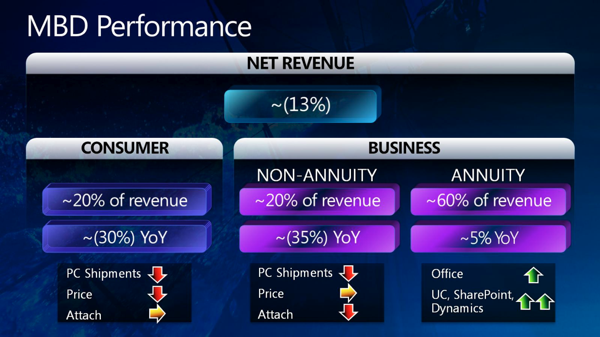
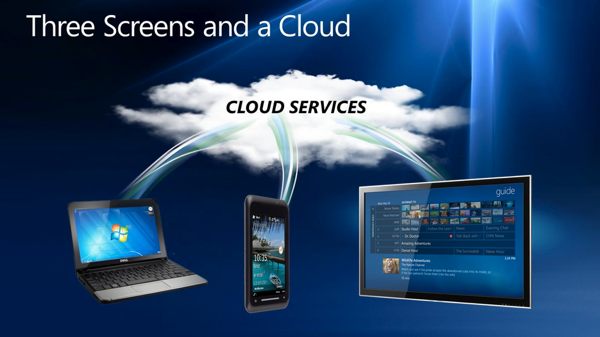
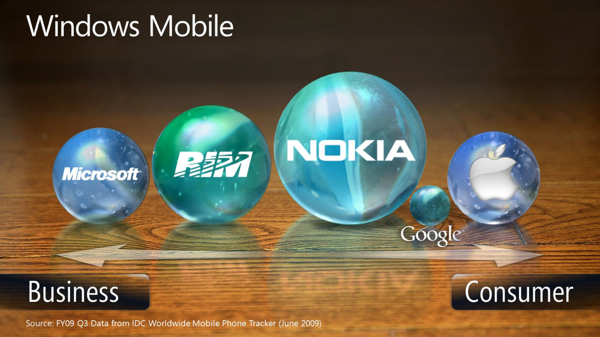

 In late June and early July, Dell's Taiwanese Web shop accidentally created some outlandishly cheap deals on Dell hardware which resulted in a huge influx of orders that Dell could not fill. The company is now facing fines from Taiwan's Consumer Protection Commission and Fair Trade Commission for misleading customers.
In late June and early July, Dell's Taiwanese Web shop accidentally created some outlandishly cheap deals on Dell hardware which resulted in a huge influx of orders that Dell could not fill. The company is now facing fines from Taiwan's Consumer Protection Commission and Fair Trade Commission for misleading customers.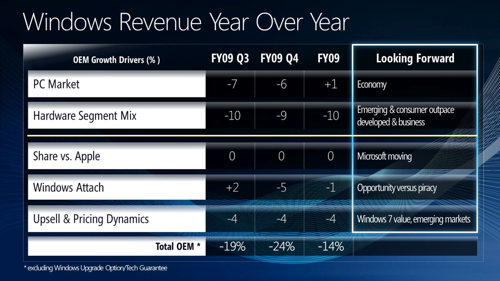
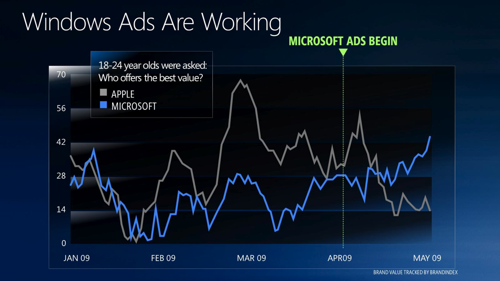
 A California company has announced that it has been awarded a patent for a "Method for Providing Episodic Media" on Tuesday. US Patent 7.568,213 was described by the firm as a "patent for podcasting," but company founder Murgesh Navar says the scope is actually broader than that.
A California company has announced that it has been awarded a patent for a "Method for Providing Episodic Media" on Tuesday. US Patent 7.568,213 was described by the firm as a "patent for podcasting," but company founder Murgesh Navar says the scope is actually broader than that. As to be expected, Microsoft responded to news today that Windows 7 activation had already been cracked by telling Betanews that customers should not pirate the operating system. But the company also said it was happy to hear that people wanted to install Windows 7.
As to be expected, Microsoft responded to news today that Windows 7 activation had already been cracked by telling Betanews that customers should not pirate the operating system. But the company also said it was happy to hear that people wanted to install Windows 7.




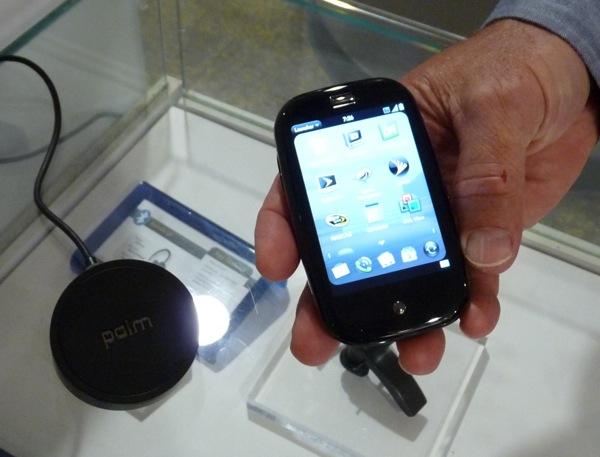
 I was strictly a Prosper lender (technically a loan buyer; the actual loans are three-year fixed items offered by regular lending institutions), treating the loan process as both a fun educational tool and a way to invest without touching the stock market, which I regarded then and now as dangerous id-driven hoodoo. (And that's why I write all those earnings reports for Betanews, kids.)
I was strictly a Prosper lender (technically a loan buyer; the actual loans are three-year fixed items offered by regular lending institutions), treating the loan process as both a fun educational tool and a way to invest without touching the stock market, which I regarded then and now as dangerous id-driven hoodoo. (And that's why I write all those earnings reports for Betanews, kids.) 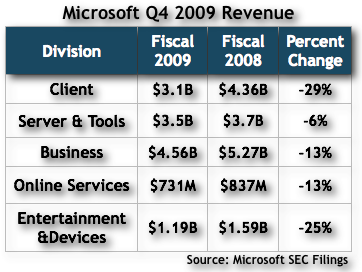
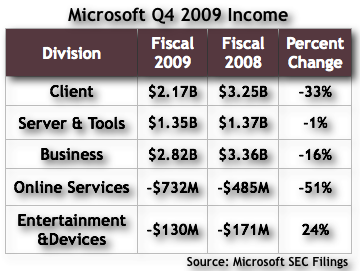
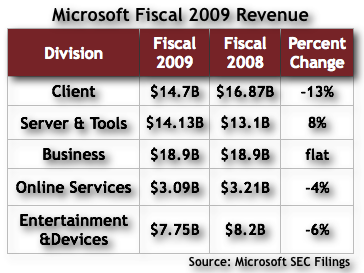
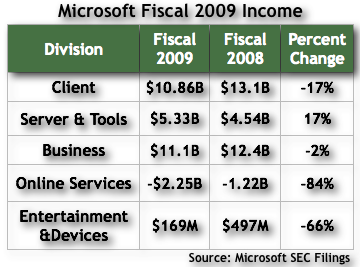



 Worse, Apple knew and chose to file exemption after exemption with the CPSC, putting its corporate image ahead of consumer safety. Clancy got the runaround from Apple's PR on this story (welcome to my world, darlin') but the information she's uncovered indicates that a recall still isn't out of the question. Public floggings for Apple's legal beagles and PRejects were not mentioned.
Worse, Apple knew and chose to file exemption after exemption with the CPSC, putting its corporate image ahead of consumer safety. Clancy got the runaround from Apple's PR on this story (welcome to my world, darlin') but the information she's uncovered indicates that a recall still isn't out of the question. Public floggings for Apple's legal beagles and PRejects were not mentioned.

 Google Wave to begin crashing through this fall
Google Wave to begin crashing through this fall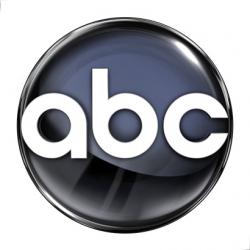 How much will you pay to watch ABC?
How much will you pay to watch ABC?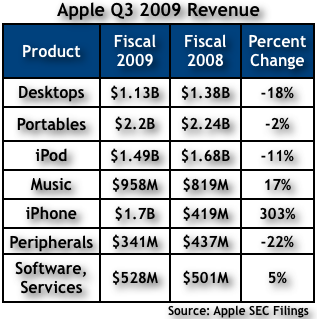
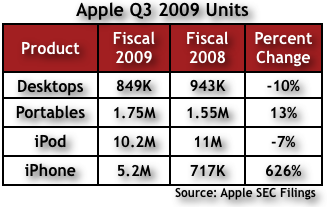
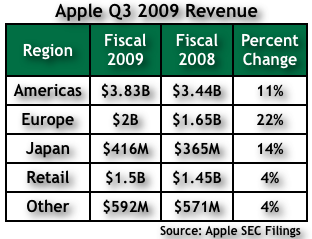
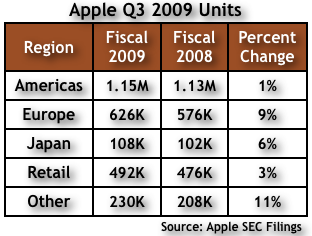
 The iPhone crowd has turned into an anti-AT&T mob. Spend 30 seconds on Twitter or perform even the most basic search for iPhone and AT&T information and you're sure to run into some serious rancor from disgusted iPhone users across the country. While the exclusive partnership between Cupertino and the Dallas teleco has never been perfect, user hostility has lately been at a fevered pitch.
The iPhone crowd has turned into an anti-AT&T mob. Spend 30 seconds on Twitter or perform even the most basic search for iPhone and AT&T information and you're sure to run into some serious rancor from disgusted iPhone users across the country. While the exclusive partnership between Cupertino and the Dallas teleco has never been perfect, user hostility has lately been at a fevered pitch. 
 It's worth noting here that Chrome doesn't display converted Web apps in a "Chrome window" -- in other words, it's not sensitive to the new "snap-to" events that premiered in Chrome 3, and that are part of the basis for Google's claim to a wholly new windowing environment. So you can't bump a Web app window alongside a Chrome window, for instance, and have it hug the side of it, as you can with two Chrome windows. This is to Chrome's credit; in fact, Web app developers would probably prefer their hosting platform to be as neutral as possible.
It's worth noting here that Chrome doesn't display converted Web apps in a "Chrome window" -- in other words, it's not sensitive to the new "snap-to" events that premiered in Chrome 3, and that are part of the basis for Google's claim to a wholly new windowing environment. So you can't bump a Web app window alongside a Chrome window, for instance, and have it hug the side of it, as you can with two Chrome windows. This is to Chrome's credit; in fact, Web app developers would probably prefer their hosting platform to be as neutral as possible. Chrome's method of making a Web application into a stand-alone app is, like much of Google, characteristically understated -- so much so that finding out the proper metaphor Google chose to use is a lot of needless guesswork. Chrome portrays the job as an "application shortcut to the desktop," which many users won't immediately recognize as any different from making a Web page shortcut to the desktop. If an app runs via shortcut, then one might conclude that dragging the app's URL to the desktop -- which does create a shortcut -- would make the right kind of shortcut. No, this creates a URL that launches the browser, just as with any Web page in the past.
Chrome's method of making a Web application into a stand-alone app is, like much of Google, characteristically understated -- so much so that finding out the proper metaphor Google chose to use is a lot of needless guesswork. Chrome portrays the job as an "application shortcut to the desktop," which many users won't immediately recognize as any different from making a Web page shortcut to the desktop. If an app runs via shortcut, then one might conclude that dragging the app's URL to the desktop -- which does create a shortcut -- would make the right kind of shortcut. No, this creates a URL that launches the browser, just as with any Web page in the past.


 Right on schedule, the latest Clear WiMAX network has launched, bringing 4G wireless coverage to 638 square miles of Sin City. Clearwire detailed its plans for Summer launches in Atlanta and Las Vegas
Right on schedule, the latest Clear WiMAX network has launched, bringing 4G wireless coverage to 638 square miles of Sin City. Clearwire detailed its plans for Summer launches in Atlanta and Las Vegas 

 While this travesty of national priorities continues to play out and American's space interests starve, competing nations like China are pedal-to-the-metal on their own plans to accelerate their space programs. And as they inspire their own generations of tomorrow to pursue their technological dreams, American industry, lacking the celebrity of a globally leading space program, will continue to wrestle with falling numbers of science and engineering grads and an inability to fuel tomorrow's tech business growth.
While this travesty of national priorities continues to play out and American's space interests starve, competing nations like China are pedal-to-the-metal on their own plans to accelerate their space programs. And as they inspire their own generations of tomorrow to pursue their technological dreams, American industry, lacking the celebrity of a globally leading space program, will continue to wrestle with falling numbers of science and engineering grads and an inability to fuel tomorrow's tech business growth.



 In Microsoft's history, it was Windows 95 that had finally confirmed for the entire operating system market that Windows had "arrived," cementing its position as the dominant system for well over a decade to come. The place of Windows Home Server in the market Microsoft has been working to create for it, has been far more tenable -- it doesn't really have competition in its category, but Home Server has yet to prove that it has "arrived." That could change with the forthcoming introduction of Power Pack 3, which will incorporate support for Windows 7, and which also may restore some features which loyal users have, to their surprise, found missing in recent versions.
In Microsoft's history, it was Windows 95 that had finally confirmed for the entire operating system market that Windows had "arrived," cementing its position as the dominant system for well over a decade to come. The place of Windows Home Server in the market Microsoft has been working to create for it, has been far more tenable -- it doesn't really have competition in its category, but Home Server has yet to prove that it has "arrived." That could change with the forthcoming introduction of Power Pack 3, which will incorporate support for Windows 7, and which also may restore some features which loyal users have, to their surprise, found missing in recent versions.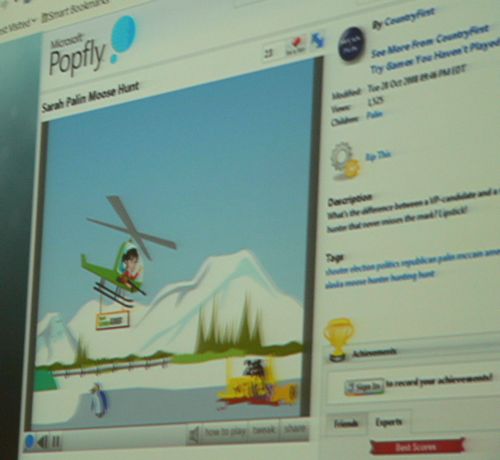



 Our continuing Linux-vs.-Windows series turns now to the absolute basics -- the most universal, and occasionally most important, task you will undertake with any computer. Whatever software and OS you use, whatever you do with the machine, sooner or later you're going to install, update or upgrade something. How does the process compare on the two platforms?
Our continuing Linux-vs.-Windows series turns now to the absolute basics -- the most universal, and occasionally most important, task you will undertake with any computer. Whatever software and OS you use, whatever you do with the machine, sooner or later you're going to install, update or upgrade something. How does the process compare on the two platforms? Backing up applications
Backing up applications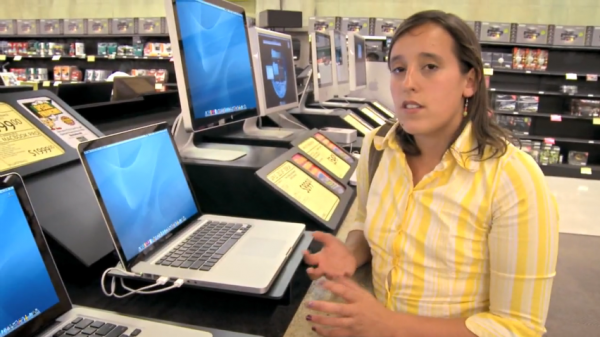
 The question has been asked, who really needs to use Microsoft Office these days? The answer is, anyone who is in the business of professionally generating content for a paying customer. Word 2010 may not be the optimum tool for the everyday blogger, and Excel 2010 maybe not the best summer trip planner, just as a John Deere is not the optimum vehicle for a trip to the grocery store. But in recent years, Microsoft is the only software producer that has come close to understanding what professional content creators require in their daily toolset.
The question has been asked, who really needs to use Microsoft Office these days? The answer is, anyone who is in the business of professionally generating content for a paying customer. Word 2010 may not be the optimum tool for the everyday blogger, and Excel 2010 maybe not the best summer trip planner, just as a John Deere is not the optimum vehicle for a trip to the grocery store. But in recent years, Microsoft is the only software producer that has come close to understanding what professional content creators require in their daily toolset.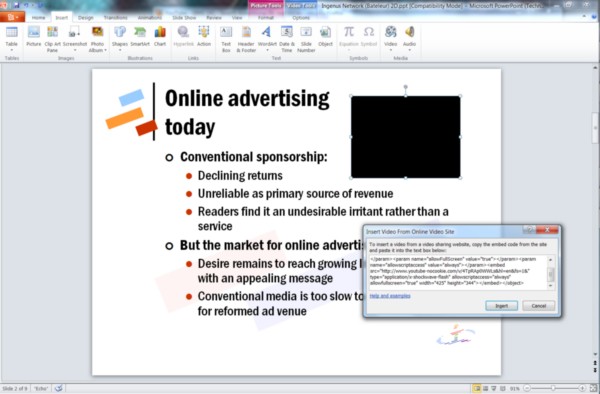
 4. Restrict Editing command in Word 2010. Many publishing organizations use Word as their principal tool for editing textual content, which means collaborators shuttle multiple documents between authors, editors, and proofreaders. Microsoft's collaboration tools are supposed to enable only certain parties to make changes. But in the publishing business, formatting codes are the keys to the final formatting of a production document, and if someone who has access rights can change those paragraph formats, even accidentally (which is easier to accomplish than you might imagine, thanks to customizable document templates belonging to each user), the entire production process can be held up, sometimes for days, while formatters work out the kinks.
4. Restrict Editing command in Word 2010. Many publishing organizations use Word as their principal tool for editing textual content, which means collaborators shuttle multiple documents between authors, editors, and proofreaders. Microsoft's collaboration tools are supposed to enable only certain parties to make changes. But in the publishing business, formatting codes are the keys to the final formatting of a production document, and if someone who has access rights can change those paragraph formats, even accidentally (which is easier to accomplish than you might imagine, thanks to customizable document templates belonging to each user), the entire production process can be held up, sometimes for days, while formatters work out the kinks.
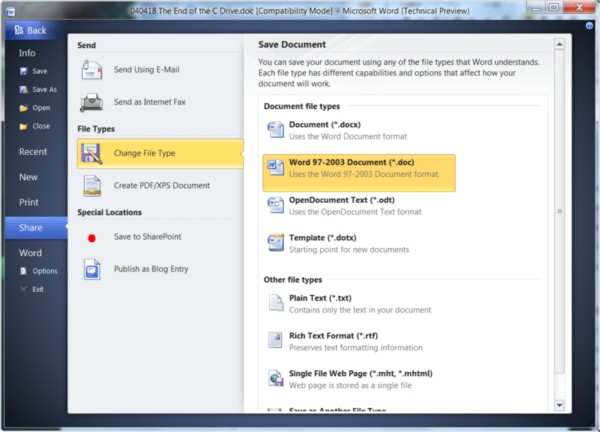

 But since this is a security column, let us view the proposal through that lens. Because honestly, someone should have before this "just a concept, an idea" piece was ever released to a nation that needs serious thought about fixing its schools, rather than dreamy-eyed drooling over a gadget.
But since this is a security column, let us view the proposal through that lens. Because honestly, someone should have before this "just a concept, an idea" piece was ever released to a nation that needs serious thought about fixing its schools, rather than dreamy-eyed drooling over a gadget. In the final scenes of
In the final scenes of  I came to that realization when Ballmer made the following remarks late in yesterday's talk to the company's development and production partners, when he began alluding to his competitor the way AMD typically alludes to Intel:
I came to that realization when Ballmer made the following remarks late in yesterday's talk to the company's development and production partners, when he began alluding to his competitor the way AMD typically alludes to Intel: What's his objective? Google's business model is centered around online advertising, and every business it has organically grown or successfully grafted onto itself, extends that business model outward. It's based on the (unproven) theory that advertising alone can float an enterprise -- a theory which doesn't seem to be working for print media concerns that were too slow to adopt new media. As long as Google's model continues to expand, its existence threatens Microsoft, whose business model is based around more conventional sales and subscriptions. Google's expansion absorbs portions of Microsoft's base.
What's his objective? Google's business model is centered around online advertising, and every business it has organically grown or successfully grafted onto itself, extends that business model outward. It's based on the (unproven) theory that advertising alone can float an enterprise -- a theory which doesn't seem to be working for print media concerns that were too slow to adopt new media. As long as Google's model continues to expand, its existence threatens Microsoft, whose business model is based around more conventional sales and subscriptions. Google's expansion absorbs portions of Microsoft's base.



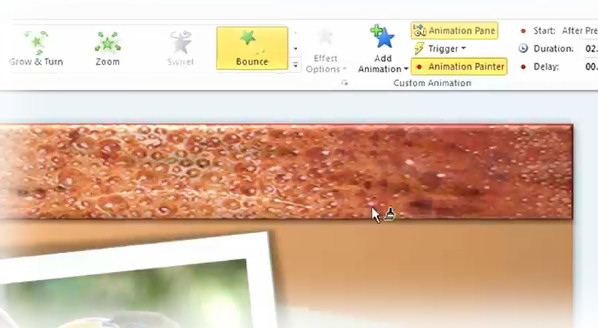
 Finally with Word 2010, there appears to be some genuine effort to make Document Map useful in a real-world setting. Yes, only now can you use a search line (instead of Find-and-Replace) to locate an area in a document that may be worth mapping. Here, the search process is instantaneous, even more so than the 2007 version's old fashioned Home > Editing > Find feature, and hopefully it's also now indicative of the way search and replace will also work in Word.
Finally with Word 2010, there appears to be some genuine effort to make Document Map useful in a real-world setting. Yes, only now can you use a search line (instead of Find-and-Replace) to locate an area in a document that may be worth mapping. Here, the search process is instantaneous, even more so than the 2007 version's old fashioned Home > Editing > Find feature, and hopefully it's also now indicative of the way search and replace will also work in Word.


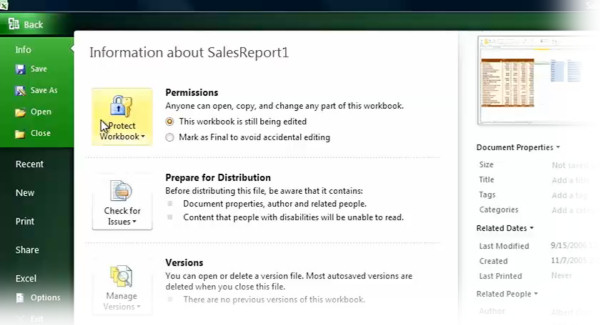

 Recording tasks that were once executed by huge studios are being accomplished in smaller and smaller settings: the demo studio was supplanted by the home studio, which was in turn replaced by the even smaller PC/laptop studio. Indie pop band The 88 made the next step down and recorded with just an iPhone. The band recently
Recording tasks that were once executed by huge studios are being accomplished in smaller and smaller settings: the demo studio was supplanted by the home studio, which was in turn replaced by the even smaller PC/laptop studio. Indie pop band The 88 made the next step down and recorded with just an iPhone. The band recently  1. Collect that data! Collect it! Dr. John Snow had a theory long before the August 1854 cholera outbreak: He suspected that the disease was not airborne but waterborne. He'd pitched the theory to other scientists and been essentially ignored, but that did not stop Dr. Snow -- he just kept amassing data points, looking for his opportunity.
1. Collect that data! Collect it! Dr. John Snow had a theory long before the August 1854 cholera outbreak: He suspected that the disease was not airborne but waterborne. He'd pitched the theory to other scientists and been essentially ignored, but that did not stop Dr. Snow -- he just kept amassing data points, looking for his opportunity.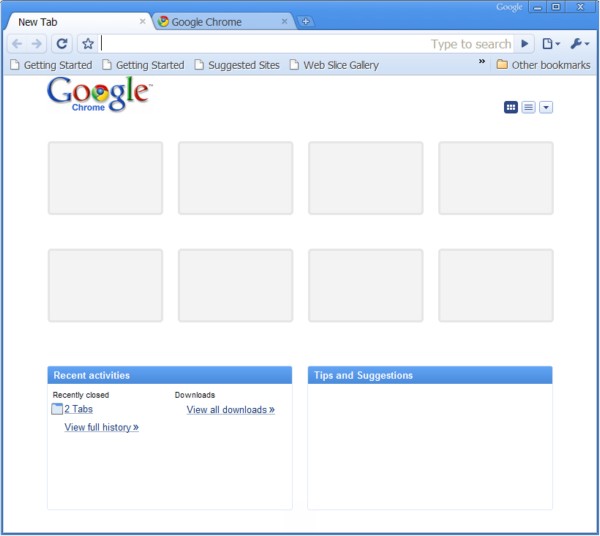

 To put a bigger dent in Apple's growing command of the US mobile phone market, T-Mobile USA will start to use weapons ranging from hardware diversity to "usability," improved customer service, and new software applications, according to Cole Brodman, CTO for the mobile carrier.
To put a bigger dent in Apple's growing command of the US mobile phone market, T-Mobile USA will start to use weapons ranging from hardware diversity to "usability," improved customer service, and new software applications, according to Cole Brodman, CTO for the mobile carrier.

 "In my view," she remarked, "growing Internet piracy is a vote of no-confidence in existing business models and legal solutions. It should be a wake-up call for policy-makers. If we do not, very quickly, make it easier and more consumer-friendly to access digital content, we could lose a whole generation as supporters of artistic creation and legal use of digital services. Economically, socially, and culturally, this would be a tragedy. It will therefore be my key priority to work, in cooperation with other Commissioners, on a simple, consumer-friendly legal framework for accessing digital content in Europe's single market, while ensuring at the same time fair remuneration of creators. Digital Europe can only be built with content creators on board; and with the generation of digital natives as interested users and innovative consumers."
"In my view," she remarked, "growing Internet piracy is a vote of no-confidence in existing business models and legal solutions. It should be a wake-up call for policy-makers. If we do not, very quickly, make it easier and more consumer-friendly to access digital content, we could lose a whole generation as supporters of artistic creation and legal use of digital services. Economically, socially, and culturally, this would be a tragedy. It will therefore be my key priority to work, in cooperation with other Commissioners, on a simple, consumer-friendly legal framework for accessing digital content in Europe's single market, while ensuring at the same time fair remuneration of creators. Digital Europe can only be built with content creators on board; and with the generation of digital natives as interested users and innovative consumers." I feel old. Looking at AOL's new Lifestream service, which lets you see all your pals' Facebook and Twitter and FriendFeed status updates in addition to whatever they're up to on AIM, I'm thinking, isn't this how we got those services in the first place, when we all decided that status messages were the most useful aspect of instant messaging clients?
I feel old. Looking at AOL's new Lifestream service, which lets you see all your pals' Facebook and Twitter and FriendFeed status updates in addition to whatever they're up to on AIM, I'm thinking, isn't this how we got those services in the first place, when we all decided that status messages were the most useful aspect of instant messaging clients? 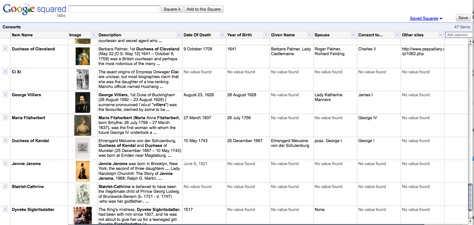
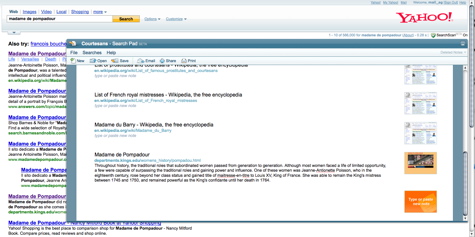
 Expecting both units to reroute for the equally simple trip on route 70, the Garmin repeatedly told me to make a U-turn and get back on 64. Telenav rerouted very quickly, but it took the Garmin unit 32 miles and a handful of exits before it realized what I was doing. It would be a long time before I was presented with another juncture like that.
Expecting both units to reroute for the equally simple trip on route 70, the Garmin repeatedly told me to make a U-turn and get back on 64. Telenav rerouted very quickly, but it took the Garmin unit 32 miles and a handful of exits before it realized what I was doing. It would be a long time before I was presented with another juncture like that.
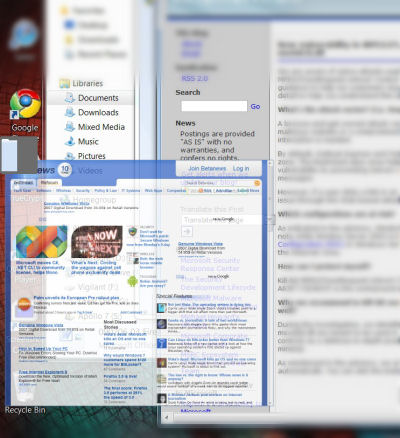 • When you drag a Chrome tab (as opposed to a window) toward the center of the edge of the desktop, an animated symbol pops up representing the projected placement of the tab's new window on the desktop if you were to release the mouse button. If you leave this symbol alone and release the button, then the new window will be created at the mouse pointer location. But if you continue dragging on top of this symbol and release there, then the new window will be opened as indicated by the symbol. For example, if you drag to the bottom (just above the taskbar), you'll see a symbol showing a window that hugs the bottom and that's half-height, leaving the top open. If you drag to the left, you'll see a symbol for a window that hugs the left edge, that's full-height and half-width. It's a little different than Microsoft's method, introduced in Windows 7, of "bumping" the edge of the desktop, and it takes an extra step, but it's certainly sensible. I've said before that I really like this feature in Windows 7, and I must admit to really liking Google Chrome's interpretation of it.
• When you drag a Chrome tab (as opposed to a window) toward the center of the edge of the desktop, an animated symbol pops up representing the projected placement of the tab's new window on the desktop if you were to release the mouse button. If you leave this symbol alone and release the button, then the new window will be created at the mouse pointer location. But if you continue dragging on top of this symbol and release there, then the new window will be opened as indicated by the symbol. For example, if you drag to the bottom (just above the taskbar), you'll see a symbol showing a window that hugs the bottom and that's half-height, leaving the top open. If you drag to the left, you'll see a symbol for a window that hugs the left edge, that's full-height and half-width. It's a little different than Microsoft's method, introduced in Windows 7, of "bumping" the edge of the desktop, and it takes an extra step, but it's certainly sensible. I've said before that I really like this feature in Windows 7, and I must admit to really liking Google Chrome's interpretation of it. • When you drag a Chrome tab toward the center of the outside edge of another Chrome window that has room alongside for a new neighbor, another animated symbol pops up depicting the relative location of the new window if you were to release the mouse button. This way, you can create a new window beside an existing one, hugging its edge. For example, if you drag an open tab toward the center of the left edge of an open Chrome window, the symbol will show two windows beside one another. You have to touch this symbol (bringing it from transparency to the forefront) and release the mouse button to snap the new window to the edge of the existing one.
• When you drag a Chrome tab toward the center of the outside edge of another Chrome window that has room alongside for a new neighbor, another animated symbol pops up depicting the relative location of the new window if you were to release the mouse button. This way, you can create a new window beside an existing one, hugging its edge. For example, if you drag an open tab toward the center of the left edge of an open Chrome window, the symbol will show two windows beside one another. You have to touch this symbol (bringing it from transparency to the forefront) and release the mouse button to snap the new window to the edge of the existing one. For now, when you drag an open Firefox 3.5 tab outside its window, you can deposit it on the desktop. Firefox will open a new window for it, but its location appears to be designated in the old-fashioned manner determined by Windows itself. Using the window device model Microsoft conceived in the 1980s, when a window produces another window, the child's default location is just below and to the right of the parent's, leaving just enough room for both title bars. So the position of the mouse pointer when you release the button is inconsequential, since Firefox's window device doesn't have the sensitivity to record the location of the pointer at the time of release.
For now, when you drag an open Firefox 3.5 tab outside its window, you can deposit it on the desktop. Firefox will open a new window for it, but its location appears to be designated in the old-fashioned manner determined by Windows itself. Using the window device model Microsoft conceived in the 1980s, when a window produces another window, the child's default location is just below and to the right of the parent's, leaving just enough room for both title bars. So the position of the mouse pointer when you release the button is inconsequential, since Firefox's window device doesn't have the sensitivity to record the location of the pointer at the time of release. After
After  4. Scan the Registry to see if any of the CLSIDs correspond exactly to any of the 45 Registry items flagged by Microsoft. More than one may correspond. If none correspond, you are already safe from this exploit. Betanews was unable, for example, to find any of the 45 Registry entries on our Windows XP or Vista systems, and we don't expect to see it in Windows 7.
4. Scan the Registry to see if any of the CLSIDs correspond exactly to any of the 45 Registry items flagged by Microsoft. More than one may correspond. If none correspond, you are already safe from this exploit. Betanews was unable, for example, to find any of the 45 Registry entries on our Windows XP or Vista systems, and we don't expect to see it in Windows 7.
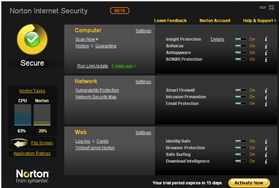 Behavioral malware detection is performed by SONAR 2, Norton 2010's heuristic engine that watches the behavior of the PC and rates every file and every process according to its activity. This develops a sort of running checklist of the reliability of everything on a system at any given time.
Behavioral malware detection is performed by SONAR 2, Norton 2010's heuristic engine that watches the behavior of the PC and rates every file and every process according to its activity. This develops a sort of running checklist of the reliability of everything on a system at any given time.
 Our subject today is full-disk encryption, that useful security tool that keeps data on your hard drive safe even if the drive itself is in peril. It's the feature that
Our subject today is full-disk encryption, that useful security tool that keeps data on your hard drive safe even if the drive itself is in peril. It's the feature that 
 But slide these two sliders around for yourself in Firefox 3.5, and watch how fluidly the browser responds to your motions, producing updates as fast as 12 frames per second on Betanews' quad-core test system. Then try this same page on Firefox 3.0, or something even older.
But slide these two sliders around for yourself in Firefox 3.5, and watch how fluidly the browser responds to your motions, producing updates as fast as 12 frames per second on Betanews' quad-core test system. Then try this same page on Firefox 3.0, or something even older.
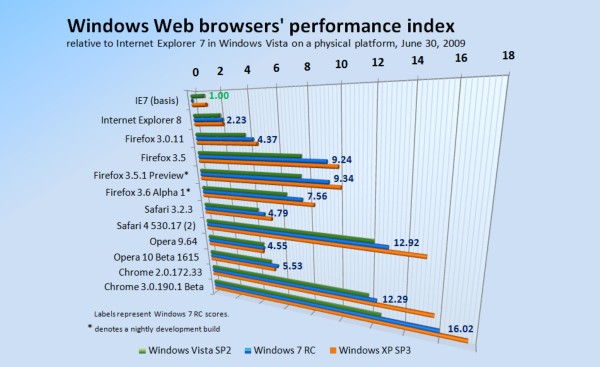
 In a comically blatant display of bravado this morning, George Hotz -- who
In a comically blatant display of bravado this morning, George Hotz -- who  That being the case, Dev-Team may regret having made that announcement, which could conceivably have given Hotz time to respond and ace that latest "hole." However, it's apparent from his front page graphics that Hotz took some time to beautify himself, as the Purple Ra1n page today contains, besides the download link, a self-portrait worthy of a 1980s album cover. Suitable for framing, evidently. Pictured at right in 2008, a somewhat more youthful looking Hotz is seen here gazing unabashedly at CNBC correspondent Erin Burnett.
That being the case, Dev-Team may regret having made that announcement, which could conceivably have given Hotz time to respond and ace that latest "hole." However, it's apparent from his front page graphics that Hotz took some time to beautify himself, as the Purple Ra1n page today contains, besides the download link, a self-portrait worthy of a 1980s album cover. Suitable for framing, evidently. Pictured at right in 2008, a somewhat more youthful looking Hotz is seen here gazing unabashedly at CNBC correspondent Erin Burnett. There actually are several features in Ultimate that are brought over from the Windows 7 Enterprise SKU, that are not to be found in Professional. Their usefulness in a typical consumer-oriented home setting, however, may be extremely limited. For example, AppLocker is designed to provide administrators with a group policy tool for specifying explicit rules for which applications can be run in the OS environment and which cannot. BranchCache enables users of corporate intranets to retrieve files and other data from locally stored caches that are nearer to the client, in networks managed by Windows Server 2008 R2. And DirectAccess is a phenomenal new feature that enables a Windows client to access a company network directly (again using WS2K8 R2), by way of a secure IPsec connection, without having to rely on anyone's VPN scheme, without any tunneling, and without having to sacrifice the client's own local network or homegroup connection.
There actually are several features in Ultimate that are brought over from the Windows 7 Enterprise SKU, that are not to be found in Professional. Their usefulness in a typical consumer-oriented home setting, however, may be extremely limited. For example, AppLocker is designed to provide administrators with a group policy tool for specifying explicit rules for which applications can be run in the OS environment and which cannot. BranchCache enables users of corporate intranets to retrieve files and other data from locally stored caches that are nearer to the client, in networks managed by Windows Server 2008 R2. And DirectAccess is a phenomenal new feature that enables a Windows client to access a company network directly (again using WS2K8 R2), by way of a secure IPsec connection, without having to rely on anyone's VPN scheme, without any tunneling, and without having to sacrifice the client's own local network or homegroup connection. As for Wikipedia, a decision was made to deny a particular organization a platform for self-advertising; if you cheered when they blocked the Scientologists, you should be cheering this one too. And Wikipedia is clear about disallowing not only original reporting but questionable sources. Some complain, but that's their policy and you're free to go elsewhere.
As for Wikipedia, a decision was made to deny a particular organization a platform for self-advertising; if you cheered when they blocked the Scientologists, you should be cheering this one too. And Wikipedia is clear about disallowing not only original reporting but questionable sources. Some complain, but that's their policy and you're free to go elsewhere. For news of the death of Michael Jackson, the volume of people turning to Google, from the perspective of everyday online users, appeared to "break the Internet." For this, SEOMOZ.org blogger Danny Dover blames...Google, for not being prepared to handle a global emergency of this magnitude. Now, I'm old enough to remember the day when terrorists flew planes into big public buildings. Back then, the Internet didn't break because we had CNN (the TV channel). If the millions who would have watched CNN or any kind of news authority are instead scrambling online over a failing connection for tweets, blips, or beeps to validate their suspicions with more suspicions, then the Internet has no reason to congratulate itself this week.
For news of the death of Michael Jackson, the volume of people turning to Google, from the perspective of everyday online users, appeared to "break the Internet." For this, SEOMOZ.org blogger Danny Dover blames...Google, for not being prepared to handle a global emergency of this magnitude. Now, I'm old enough to remember the day when terrorists flew planes into big public buildings. Back then, the Internet didn't break because we had CNN (the TV channel). If the millions who would have watched CNN or any kind of news authority are instead scrambling online over a failing connection for tweets, blips, or beeps to validate their suspicions with more suspicions, then the Internet has no reason to congratulate itself this week.